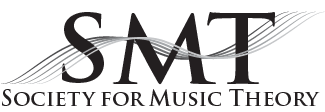
Due to changing needs and technologies, the SMT Executive Board has decided to retire SMT Discuss (effective Nov. 9, 2021). Posts will be preserved for archival purposes, but new posts and replies are no longer permitted.
jdunsby
About
- Username
- jdunsby
- Joined
- Visits
- 71
- Last Active
- Roles
- Guest
- First Name
- Jonathan
- Last Name
- Dunsby
Comments
-
There have been carefully considered accounts on AMS-L of what people are finding worse; and thinking of the expert view, I know that one of the country's leading music librarians is furious about the new interface. Any interface will suit some of t…
-
I defer to nobody in my love of scholarship and admiration for Poundie's, in this case, in particular. If one were persuaded that Mozart here is responding to what he perceived as a typical weakness in contemporaneous compositional practice, then pe…
-
In a rare moment of what may be seen as critical hubris, I did call the second theme “an exquisite development of the opening theme, which relationship may even have been the composer’s deliberate narrative,” and with all the good will in the world …
-
A classic case--the whole piece makes a great teaching example--is Brahms, Op. 76, No. 4. There are some examples that invite contemplation. What about the Chopin 2nd Ballade, op. 38, for example? Contextually, it ought to be understood as I, yet, u…
-
It makes sense to me Carson. How harmonic progression feels in the musical foreground is bound to be a somewhat individual matter, given all our variation in taste and experience. Then there's the question of how much that 'feel' is in play when we'…
-
There must be something in the 'statistical likelihood' argument, but it's not as if distributional analysis has made much headway in linguistics, Poundie. In music theory it's the kind of argument I've heard used also to throw doubt on the idea of …
-
Makes sense to me Michele. Even more sense than the Chopin 7ii / Brahms 116ii connection (or "symbiosis" as he calls it) in Hartmut Braun, Die Musikforschung, 25/3m 1972.
-
Nice collection of suggestions Nicolas. I could do some special pleading (e.g. in general these pieces are short-winded and one might say—indefensibly probably to some—over-simplified; the Chopin is in major a lot [as is a Schubert song that I think…
-
Michele, you're right that of the two possible straightforward ways to elaborate the voice-exchange (3-1 over 1-3 in the bass), Chopin opts for one, Brahms for the other (without exception throughout the violin sonata movement), and in that respect …
-
Yes indeed Pawel. On the other hand, Messiaen devoted much creative energy to the transcription and musical realization of birdsong, and to me that suggests a different attitude towards found material than Brahms's. But you're right, I'm sure, that …
-
Sorry the Chopin extract didn't make it into the window. Will try again:
-
Yes Jason, and thank you. Although I can agree with every point that's been made in all this thread so far (except for agreeing with Serge Gut's Bach reading and theory comments), which is converging on Andrew's explicit and telling observation that…
-
I wonder if the David Kraehenbuehl comment which Michiel quoted and Harald asks about was something which reflected DK's 'Forward' on the 1957, very first ever page of JMT which I'm quoting from in some of my current writing and which includes: 'The…
-
Dimitar and Andrew, all well understood and appreciated. (Charles Smith's textbook has a lucid tabular vademecum for common [pivot] chords between keys of which he theorizes that since the 19thC there are 12 keys, not 24, defined by their dominants …
-
Great catch Adam! I guess everyone pretty much knows this old song. Not ever having looked at a transcription, truly just as a listener I had always assumed that what you are calling v was in fact the focal i (i.e. the song beginning, and each verse…
-
Nicolas, thank you for some valuable clarification there. Yes, the question should be the other way round, but it sounds almost provocative that way because it is so counterintuitive to think of a minor chord functioning as a dominant, in common pra…
-
Nicolas, I meant chromatics changing v into V. I hope that makes sense.
SMT Discuss Manager: smtdiscuss@societymusictheory.org
